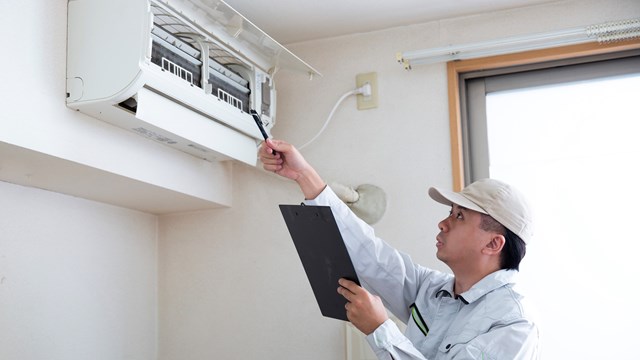
With any sort of multifamily housing arrangement comes the possibility of a certain amount of conflict between the various involved parties: shareholders, board members, management, and sponsors. In theory, a key role of a board of directors is to settle such conflicts. But what if your problem is with the board itself?
Michael Brower of Michael Brower Realty Co. Inc. in Hackensack, New Jersey says that a lack of communication is the nearly-universal reason for most shareholder complaints against a board. The most common complaints - not enough meetings held, failure of a board to promptly follow up on its decisions and responsibilities, et cetera - can usually be traced back to a board's failure to communicate. Unfortunately, communication problems often go unchecked, because the impact of a lack of communication is intangible; the morale of the shareholders is adversely affected, but the sheer monetary value of shares is not.
Greg Carlson of Carlson Realty, Inc. in Queens sees one particular type of non-communication - "non-response" - as the top complaint. "This is when you've put forth an honest effort to communicate with the board - phone calls, letters, etcetera - and nothing gets done. Life can be frustrating when you've got a problem and no one seems willing to listen."
To make matters worse, says Carlson, frustrated people sometimes build their complaints to an incendiary level that allow exaggeration and rumor to enter the equation. According to Carlson, that's what happens when a shareholder who feels slighted once winds up telling his or her neighbor that they've called and written the board 80 times without any result. And that simply breeds bad feeling and mistrust towards what might be a perfectly conscientious board.
But Michael Berenson of AKAM Associates, Inc. - a large management company based in Manhattan - points out that sometimes, when shareholders complain that their board members are "not listening," what they really mean is that the board is listening and responding, but that the complainant just doesn't like the answer. "If resident A likes to blast his stereo and resident B likes peace and quiet, when the issue goes to the board, any decision may lead to inaccurate complaints that the board "˜just isn't listening,'" says Berenson, who points out that a board's responsibility is to the community as a whole - they can't please all the people all the time.
And that nugget of wisdom - that you can't please all of the people all of the time - has been said of everyone from entertainers to statesmen, and goes double for boards of directors. When it comes to demands for communication with the board, some people simply have unrealistic explanations. There will always be the grouch who expects to be able to call anyone on the board 24 hours a day, or the self-centered neighbor who expects constant face-to-face updates, or the busy shareholder, who has somehow missed the meetings, telephone calls, and notes under his door and suddenly complains that he was never told about the new parking lot that has been under construction outside his window for the past month.
But people such as these tend to be the exception. "Generally speaking," Brower explains, "honest feedback from shareholders tends to be the one reliable source that will give the story frankly. It's like the condo-life version of that old gangster movie saying; "˜People lie - but word on the street? That's solid.'"
In other words, it's probably more productive to weigh the general consensus among shareholders about how well their board is performing more heavily than the rants of a single malcontent. That way, less-than-realistic opinions may be moderated by the more reasonable majority.
According to the experts, a board must choose appropriate means to send out regular updates to shareholders, and stick to those methods faithfully, to the point where they become institutionalized practice. Monthly newsletters are one effective method of keeping shareholders informed, websites for buildings have become a necessity for larger developments, and for smaller buildings, Carlson suggests that even the old-fashioned anonymous suggestion box can be a good way for shareholders to voice their grievances and thoughts to the board.
In today's modern era, e-mail can also be extremely useful, both for regular updates and for back-and-forth communication between board members and non-board shareholders. And regular meetings are a must. Many associations simply hold annual meetings and leave it at that. Not good enough, insists Brower, who believes that a board must hold meetings every month to be truly effective and communicative.
All of this is assuming that shareholders are dealing with a board whose desire for open, productive communication with every resident in the building is sincere. But what if this isn't the case? What if, through laziness or some other reason, the board is simply unwilling to address complaints?
"That's a very serious management problem," warns Brower. He points out that a board that limits its actions to financial decisions and minimal involvement isn't doing its job. "A board's job," explains Brower, "is to represent the interest of all people who live in the building or own property there - to give a good ear toward the community's desire for communication."
A board of directors is like a political body in any other democracy; if it doesn't do its job, the members risk being fired or voted off the board. "Elections are the outlet people have to deal with injustices," says Brower, "and boards are unjust if they fail to regularly address quality of life and other aspects of living in cooperation" beyond decisions on how the money will be spent.
A lot of focus is consistently put on the responsibilities of the board, but as Brower points out, "Responsibility is up to the people to make sure they're getting what they pay for." After all, if board memberships are paid positions, the money comes from your monthly fees. Even if the board members are strictly volunteer, however (as is more often the case), every financial decision they make has to do with your investment.
Yet the reason for poor communication between board members and non-board shareholders can just as easily lie with the shareholders as it can with the board. To illustrate, Carlson gives an example: "Good communication with board members does not consist of spotting a board member who's out walking his dog and going up to him and griping about a problem you've been having." Carlson continues, "Think about it: as he continues to walk his dog, that same board member might get stopped by three other people who want to gripe about their problems, or chat about the weather, or inquire about the board member's sick aunt in Montana. By the time he gets home, how likely is it that he will remember that first conversation?"
Board members are human, after all, says Carlson, and shareholders have to ask themselves how much they can be held responsible for remembering every casual comment made to them throughout the day.
Frankly, communities can all too easily slip into the "no news is good news" mindset when it comes to hearing from the board. When a board or association meeting suffers from a poor turnout, boards are making decisions based on a lack of input from member shareholders.
So what can you do to make sure you're doing your part for board/non-board communication? First of all, stand up for your rights. This doesn't necessarily mean becoming an activist or a building crusader, but at least know what your rights are. For example, did you know that the law has specific requirements for procedures such as notices of special assessment? Legally, it's not enough for an assessment to be discussed and agreed upon in a meeting; assessment notices must be delivered, in writing, no less than thirty days in advance, and they must include a description of how the decision for the assessment was made. Also, the board must have limits on how much they can spend on any one venture. The exact amount varies (check your building documents) but any expenditure over, say, $10,000 requires a vote rather than a simple board decision.
Second, says Carlson, know who's doing their job and who isn't. After all, while the board and the management company share many responsibilities, they are two separate entities, and it does no good to complain about one if the fault lies with the other - or somewhere else entirely.
And above all, stay involved. If you have comments, complaints, or questions about a board decision, or your board's level of communication, let the board know. Berenson strongly recommends taking the initiative of adding a level of formality to communications with the board. If you have a problem, write out a letter clearly outlining the issue. "Supply supporting documentation if necessary," says Berenson. "Also, don't be afraid to request one-on-one meetings with board members to discuss issues. If you've got a serious problem, why wait until the next scheduled meeting?" Berenson posits that most boards are generally very good at responding to people who take the time to bring up an issue. The board has its share of responsibilities, but it's your investment. Protection of that investment is ultimately up to you.






Comments
Leave a Comment